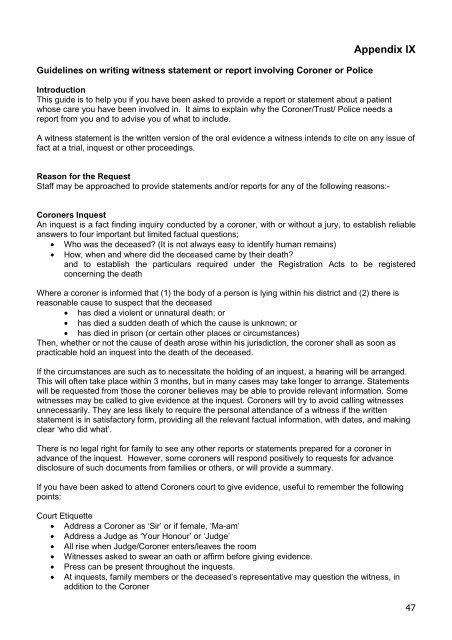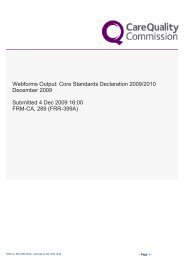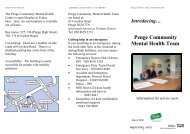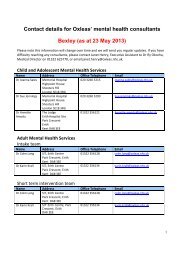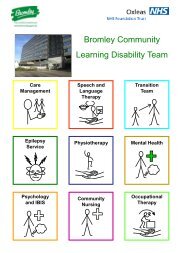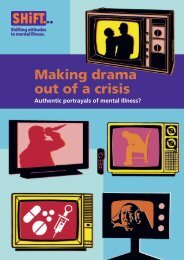Incident Management Policy and Procedure 652.0 KB - Oxleas NHS ...
Incident Management Policy and Procedure 652.0 KB - Oxleas NHS ...
Incident Management Policy and Procedure 652.0 KB - Oxleas NHS ...
Create successful ePaper yourself
Turn your PDF publications into a flip-book with our unique Google optimized e-Paper software.
Guidelines on writing witness statement or report involving Coroner or PoliceAppendix IXIntroductionThis guide is to help you if you have been asked to provide a report or statement about a patientwhose care you have been involved in. It aims to explain why the Coroner/Trust/ Police needs areport from you <strong>and</strong> to advise you of what to include.A witness statement is the written version of the oral evidence a witness intends to cite on any issue offact at a trial, inquest or other proceedings.Reason for the RequestStaff may be approached to provide statements <strong>and</strong>/or reports for any of the following reasons:-Coroners InquestAn inquest is a fact finding inquiry conducted by a coroner, with or without a jury, to establish reliableanswers to four important but limited factual questions;• Who was the deceased? (It is not always easy to identify human remains)• How, when <strong>and</strong> where did the deceased came by their death?<strong>and</strong> to establish the particulars required under the Registration Acts to be registeredconcerning the deathWhere a coroner is informed that (1) the body of a person is lying within his district <strong>and</strong> (2) there isreasonable cause to suspect that the deceased• has died a violent or unnatural death; or• has died a sudden death of which the cause is unknown; or• has died in prison (or certain other places or circumstances)Then, whether or not the cause of death arose within his jurisdiction, the coroner shall as soon aspracticable hold an inquest into the death of the deceased.If the circumstances are such as to necessitate the holding of an inquest, a hearing will be arranged.This will often take place within 3 months, but in many cases may take longer to arrange. Statementswill be requested from those the coroner believes may be able to provide relevant information. Somewitnesses may be called to give evidence at the inquest. Coroners will try to avoid calling witnessesunnecessarily. They are less likely to require the personal attendance of a witness if the writtenstatement is in satisfactory form, providing all the relevant factual information, with dates, <strong>and</strong> makingclear ‘who did what’.There is no legal right for family to see any other reports or statements prepared for a coroner inadvance of the inquest. However, some coroners will respond positively to requests for advancedisclosure of such documents from families or others, or will provide a summary.If you have been asked to attend Coroners court to give evidence, useful to remember the followingpoints:Court Etiquette• Address a Coroner as ‘Sir’ or if female, ‘Ma-am’• Address a Judge as ‘Your Honour’ or ‘Judge’• All rise when Judge/Coroner enters/leaves the room• Witnesses asked to swear an oath or affirm before giving evidence.• Press can be present throughout the inquests.• At inquests, family members or the deceased’s representative may question the witness, inaddition to the Coroner47


